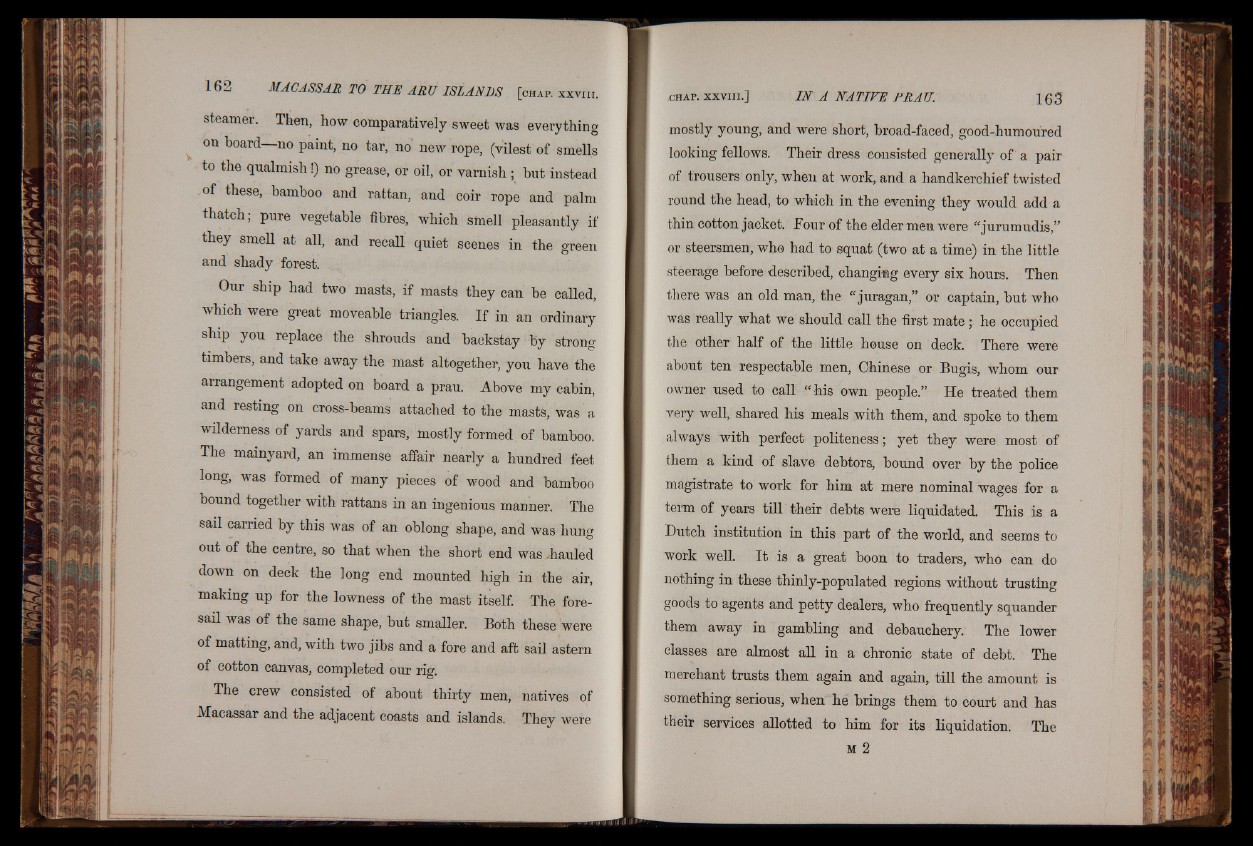
steamer. Then, how comparatively sweet was everything
on board no paint, no tar, no new rope, (vilest of smells
to the qualmish !) no grease, or oil, or varnish ; but instead
of these, bamboo and rattan, and coir rope and palm
thatch; pure vegetable fibres, which smell pleasantly if
they smell at all, and recall quiet scenes in the green
and shady forest.
Our ship had two masts, if masts they can be called,
which were great moveable triangles. If in an ordinary
ship you replace the shrouds and backstay by strong
timbers, and take away the mast altogether, you have the
arrangement adopted on board a prau. Above my cabin,
and resting on cross-beams attached to the masts, was a
wilderness of yards and spars, mostly formed of bamboo.
The mainyard, an immense affair nearly a hundred feet
long, was formed of many pieces of wood and bamboo
bound together with rattans in an ingenious manner. The
sail carried by this was of an oblong shape, and was hung
out of the centre, so that when the short end was Jiauled
down on deck the long end mounted high in the air,
making up for the lowness of the mast itself. The fore-
sad was of the same shape, but smaller. Both these were
of matting, and, with two jibs and a fore and aft sail astern
of cotton canvas, completed our rig.
The crew consisted of about thirty men, natives of
Macassar and the adjacent coasts and islands. They were
mostly young, and were short, broad-faced, good-humoured
looking fellows. Their dress consisted generally of a pair
of trousers only, when at work, and a handkerchief twisted
round the head, to which in the evening they would add a
thin cotton jacket. Four of the elder men were “jurumudis,”
or steersmen, who had to squat (two at a time) in the little
steerage before described, changing every six hours. Then
there was an old man, the “ juragan,” or captain, but who
was really what we should call the first mate; he occupied
the other half of the little house on deck. There were
about ten respectable men, Chinese or Bugis, whom our
owner used to call “ his own people.” He treated them
very well, shared his meals with them, and spoke to them
always with perfect politeness; yet they were most of
them a kind of slave debtors, bound over by the police
magistrate to work for him at mere nominal wages for a
term of years till their debts were liquidated. This is a
Dutch institution in this part of the world, and seems to
work well. It is a great boon to traders, who can do
nothing in these thinly-populated regions without trusting
goods to agents and petty dealers, who frequently squander
them away in gambling and debauchery. The lower
classes are almost all in a chronic state of debt. The
merchant trusts them again and again, till the amount is
something serious, when he brings them to court and has
their services allotted to him for its liquidation. The
M 2